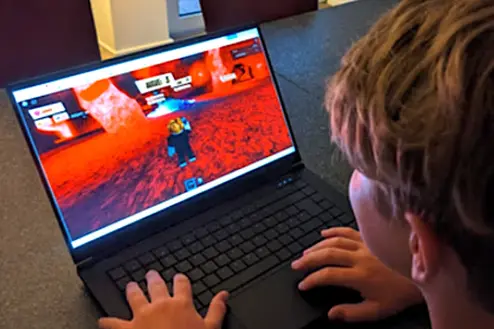Research
Our research aspires to achieve both scientific excellence and practical relevance, positioning itself within the field of Information Systems in the community of the “Association for Information Systems Special Interest Group on Human-Computer Interaction” (AIS SIG HCI).
At the core of our work lies the investigation of the design and impact of gamified, hedonic, and immersive information systems, as well as their potential to address pressing economic and societal challenges. Further, we examine the economic, social, technological, and cultural influences stemming from the increasing integration of digital games and gamification into everyday life.
This research is organized into the following four areas of inquiry:
Games and gamification in product and service design:
Our research in this area focuses on generating new design knowledge to support practitioners in designing effective gamified and hedonic information systems (e.g., gamified apps, serious games). It explores the psychological and behavioral outcomes of gameful design through surveys, lab studies, and field experiments. This research addresses current economic and societal challenges and supports the development of innovative gameful products and services, particularly in fields such as healthcare, mobility, and education.
Games in culture, economy, and society
This focus area investigates the cultural, societal, and economic impacts of emerging trends in the gaming industry (e.g., VR/AR/XR, the metaverse, virtual goods) as well as the growing use of digital games and game-based approaches in organizations and everyday life. A central goal of this research is to better understand these developments and to support organizations and policymakers in strategic decision-making, for example, concerning shifting customer expectations, societal challenges, or regulatory issues.
Gamification of sports and health:
In this research area, we explore the potential of technologies, methods and principles from game design (including gamification and VR/AR/XR) to support prevention, diagnosis, therapy, rehabilitation and care. The aim is to develop innovative game-based approaches for sports, health, and well-being, and to investigate digital solutions to address current challenges in healthcare systems.
Gamification and the future of work:
This research focuses on examining the application of technologies, methods, and insights from game design (such as gamification and game design thinking) to tackle current challenges related to the future of work and value creation. We place a particular focus on analysing the influence and potential of gamification in human cooperation, as well as in interactions between humans and intelligent technologies (e.g., robots and AI).
Our research is application-oriented and conducted in close collaboration with partners from industry and society. Through our well-equipped Gameful Innovation Lab, we offer companies an attractive opportunity to collaborate in the development of novel game-based innovations.
Methodologically, our research draws on a wide range of qualitative and quantitative methods, including (psychometric) surveys, design science research, controlled experiments, field experiments, qualitative interviews, and systematic literature reviews.
Current research projects
Projects carried out by our research group at the FAU Erlangen-Nürnberg
Our research group moved from the Friedrich-Alexander-Universit?t Erlangen-Nürnberg (FAU) to the University of Bamberg in February 2025. An overview of our research projects conducted at FAU can be found here.
Completed research projects
Learn2Focus with Information Systems

Research field: Gamification and the future of work
Team: Dr. Jeanine Kirchner-Krath, FAU
Further information
Design and evaluation of gamification solutions to improve football training

Research field: Gamification of sports and health
Team: Sandra Birnstiel, FAU
Further information

Research field: Games and gamification in product and service innovation
Team: Mareike Weber, FAU
Further information
Game-based solutions for logistics

Research field: Gamification and the future of work
Team: Jonathan Stief
Further information
Gamifying the human-AI interaction

Research field: Gamification and the future of work
Team: Maximilian Wittmann
Further information
Designing and understanding the effects of gamified VR training on human-robot teaming

Research field: Gamification and the future of work
Team: Mareike Weber
Further information
ParKing – A gamified crowdsourcing approach to simplify parking
Research field: Games and gamification in product and service innovation
Further information





